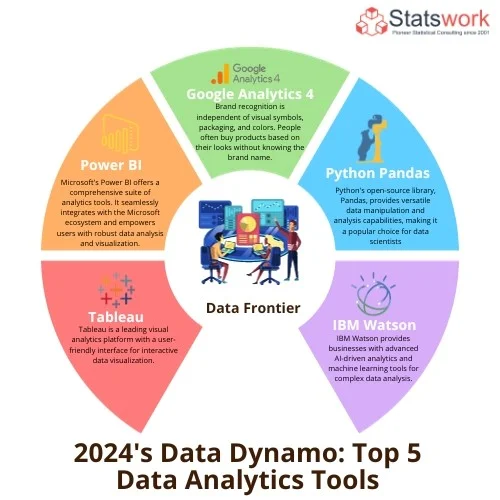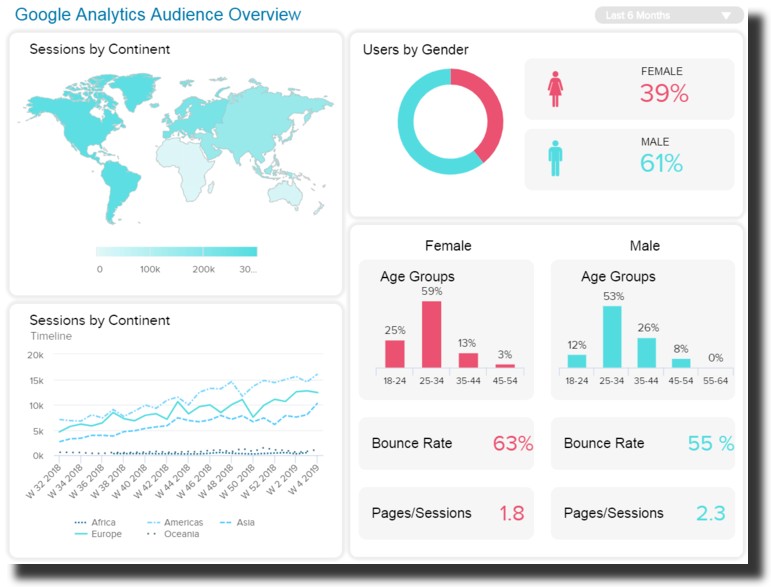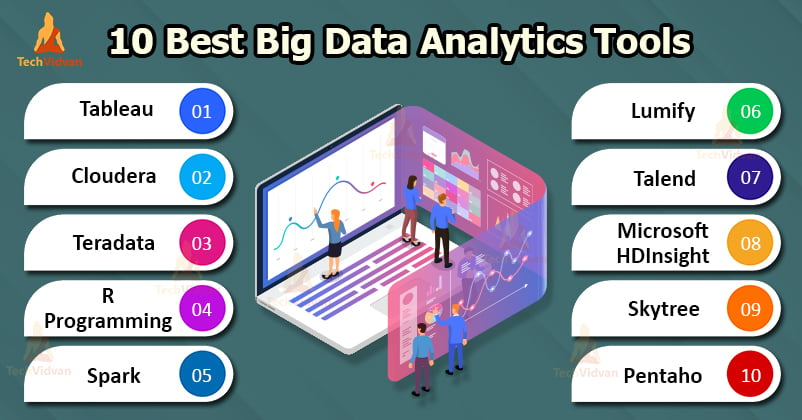Maximize Development: Exactly How Analytics Drive Better Strategies
By harnessing data understandings, businesses can improve their operational approaches, expect market modifications, and enhance client engagement. The challenge exists not only in accumulating data but in efficiently interpreting it to drive tangible results.
Comprehending Information Analytics
Information analytics is an organized computational evaluation of data that allows organizations to reveal meaningful patterns and understandings. This process encompasses a variety of techniques, including analytical evaluation, anticipating modeling, and information mining, which collectively aim to change raw information right into workable details - Analytics. By utilizing these methods, companies can make educated decisions that are rooted in empirical evidence as opposed to instinct alone
The foundation of information analytics depends on its capacity to manage large amounts of info from varied sources. This consists of organized data, such as databases, and unstructured information, including social networks interactions and client responses. Via the usage of specialized software and devices, analysts can extract and process this information successfully, recognizing patterns and connections that might not be immediately noticeable.
Recognizing data analytics also involves acknowledging the significance of data top quality and stability. Reputable and accurate information is important for meaningful evaluation; therefore, organizations need to execute durable information administration practices. In addition, the iterative nature of analytics permits constant refinement and renovation of methods, ensuring that organizations continue to be nimble despite altering market characteristics and customer behavior.
Secret Benefits of Analytics

One of the essential benefits of analytics is its capability to offer actionable insights. Organizations can promptly assess substantial quantities of information, revealing patterns that might not be promptly evident.
One more substantial benefit is enhanced consumer understanding. Analytics devices allow companies to section their audience, track customer habits, and personalize advertising and marketing efforts. This targeted strategy not only improves consumer interaction but also drives greater conversion rates.

Implementing Analytics Methods
To fully recognize the benefits of analytics, organizations have to adopt structured approaches for implementation. This starts with clearly defining purposes that straighten with broader service goals. By establishing certain, quantifiable outcomes, organizations can concentrate their analytics efforts on areas that generate the greatest return on financial investment.
Next, organizations ought to prioritize information administration to ensure the stability and protection of the information being examined. This involves establishing procedures for data collection, storage, and gain access to while sticking to relevant policies. Guaranteeing high-grade information is crucial for generating significant understandings.
In addition, cultivating a society of data-driven decision-making is crucial. This needs training staff members to analyze analytics searchings for and motivating cooperation throughout divisions. When groups comprehend the worth of analytics, they are a lot more most likely to integrate insights into their daily procedures.
Lastly, companies need to regularly assess and fine-tune their analytics methods. The landscape of data and technology is continually evolving, and remaining versatile will certainly enable organizations to leverage brand-new tools and approaches successfully. By executing these organized methods, companies can make best use of the influence of their analytics efforts and drive sustainable development.
Devices for Effective Evaluation
Reliable evaluation relies upon a variety of devices that assist in the extraction of understandings from data - Analytics. These tools can range from simple spread sheet applications to advanced equipment discovering platforms, each offering an unique objective in the analytical procedure
Information visualization software, such as Tableau and Power BI, plays a critical role in changing complex datasets right into understandable graphical depictions. These devices enable experts to identify fads and patterns rapidly, permitting even more informed decision-making.
Analytical evaluation software program, like R and SAS, offers Analytics sophisticated abilities for conducting thorough evaluations, consisting of regression, theory testing, and predictive modeling - Analytics. These functions encourage companies to draw meaningful final thoughts from their data, determining prospective chances and threats
Additionally, database administration systems such as SQL and NoSQL databases supply the essential facilities for keeping and inquiring large volumes of data effectively. They helpful site make sure that data is organized and easily accessible for evaluation.
Last but not least, organization knowledge systems incorporate various data sources, providing an extensive view of organizational efficiency. By making use of these devices properly, organizations can boost their logical abilities, enabling them to establish methods that make best use of growth and boost total efficiency.
Situation Research Studies of Success
Successful companies usually take advantage of information analytics to drive impactful methods, as evidenced by a number of notable situation studies. By using these insights, Netflix has actually successfully tailored its material suggestions, resulting in boosted user involvement and subscriber retention.

Additionally, Starbucks utilizes data analytics to identify ideal store locations and improve its product offerings. By analyzing client demographics and buying patterns, Starbucks effectively recognizes high-potential markets and customizes its food selection to local link preferences, driving sales and customer commitment.
These case studies show that efficient use of information analytics can cause calculated benefits, cultivating innovation and growth within companies throughout numerous markets.
Final Thought
To conclude, the assimilation of analytics right into organizational techniques considerably enhances decision-making processes and fosters lasting development. By leveraging data-driven insights, companies can identify fads, prepare for market changes, and maximize operations. The effective execution of analytics devices even more supports agility and innovation, making it possible for organizations to navigate affordable landscapes with greater precision. Inevitably, a commitment to analytics not just drives instant performance renovations but additionally protects lasting success in an ever-evolving industry.
Information analytics is a systematic computational evaluation of information that allows companies to uncover purposeful patterns and insights.Recognizing data analytics additionally involves identifying the importance of data top quality and integrity. Trustworthy and accurate data is crucial for significant evaluation; thus, organizations need to implement robust information governance practices.Next, companies ought to focus on data governance to make certain the integrity and safety of the information being analyzed.Successful companies often take advantage of information analytics to drive impactful approaches, as shown by several noteworthy instance studies.